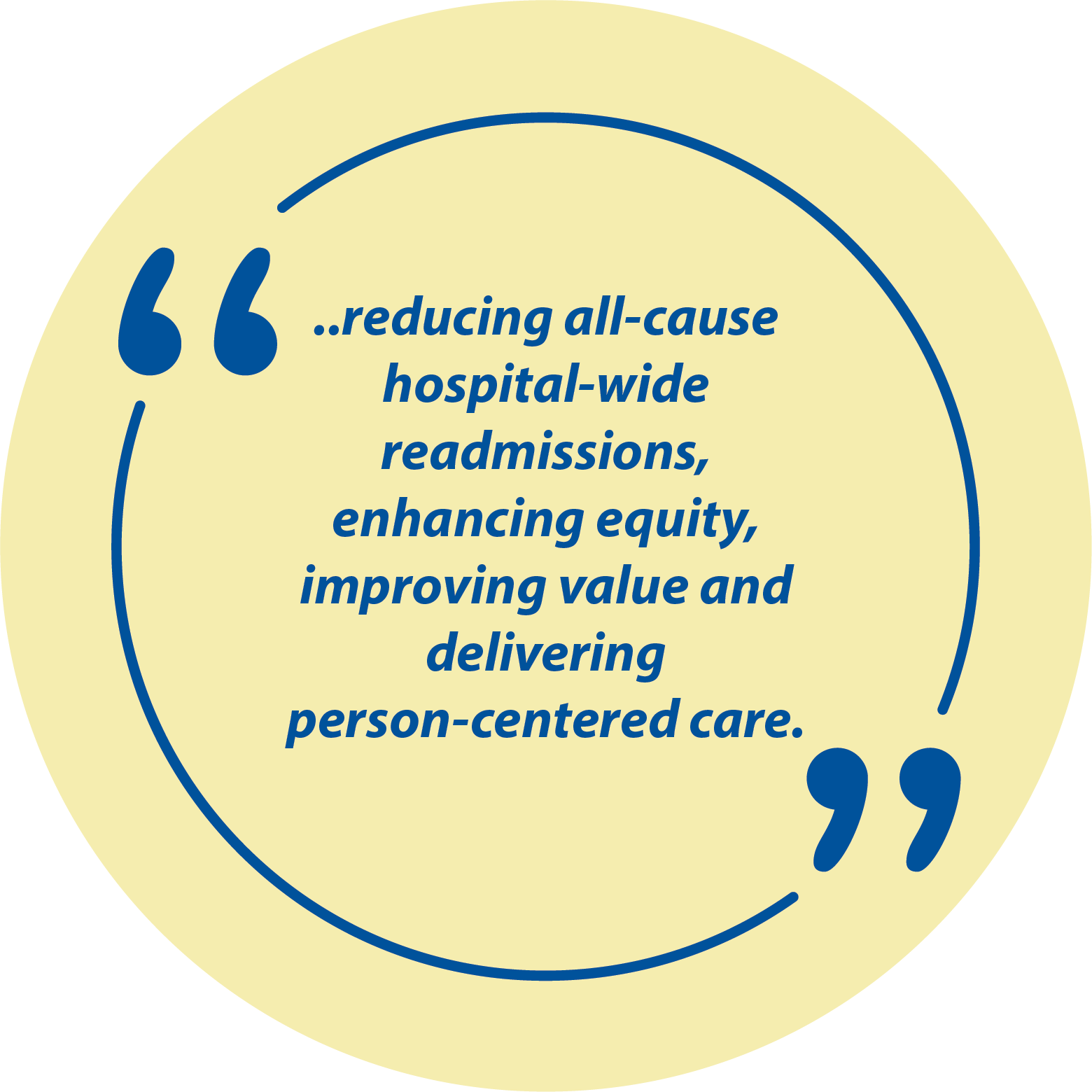 The Health Quality Innovators (HQI) team recently led a five-month initiative aimed at reducing all-cause hospital-wide readmissions, enhancing equity, improving value and delivering person-centered care.
The Health Quality Innovators (HQI) team recently led a five-month initiative aimed at reducing all-cause hospital-wide readmissions, enhancing equity, improving value and delivering person-centered care.
The ASPIRE+ to Reduce Readmissions Series, which wrapped up in May 2022, was designed to provide techniques and strategies relevant to small, rural facilities as well as large, urban facilities to plan, implement and learn from small-scale tests of change.
Hospitals that are part of HQI’s Hospital Quality Improvement Contractor (HQIC) programs were invited to participate in this program facilitated by Dr. Amy Boutwell, a nationally recognized expert in the field of reducing readmissions and improving care for high-risk and multi-visit patients. Recruitment was intended to represent a variety of facility types, in hopes that every hospital could relate to at least one of those selected as participants.
The ASPIRE+ Method is the leading all-cause hospital-wide readmission reduction approach in the nation, originally developed for the Agency for Healthcare Research and Quality (AHRQ) to adapt and identify strategies to reduce readmissions at the population (hospital-wide) level.
HQI invited five hospital “Discovery Teams” to use the ASPIRE+ Method through live coaching calls. The participating facilities represented a variety of hospital types, including critical access and acute care, as well as those serving rural, urban and suburban communities. Targeted staff included those charged with patient safety, quality, equity, value, readmission reduction and improving the patient experience.

The ASPIRE+ to Reduce Readmissions Series consisted of interactive virtual sessions designed to deliver bite-sized, practical, feasible and effective readmission reduction strategies. Two sessions – a Discover Session and a Coaching Session – were held each month over the five-month period.
During the Discover Sessions, participants who volunteered to receive coaching shared their challenges in real time. This allowed the Discovery Teams to openly discuss barriers and concerns so that Dr. Boutwell could provide possible actions to implement.
Coaching Sessions served as forums for peer-to-peer sharing to discuss current challenges, ask questions and receive live coaching. Dr. Boutwell opened the discussion to all participants on the call. The process fostered collaboration as teams discussed how they applied concepts into practice, what worked and what could be improved upon. Overall, all participants had the opportunity to learn from each other while building a collective momentum toward reducing readmissions in a variety of settings with a variety of challenges.
Through the sessions, participants identified recurrent root causes of readmissions as well as structural inequities, developed strategies to mitigate the most frequent root causes of readmissions, deployed readmission reduction strategies to the emergency department, and applied quality improvement techniques to plan, implement and learn from small-scale tests of change.
The Discovery Teams have already reported seeing positive results from the actions they took as a result of their participation. In addition to the gains individual facilities achieved, HQI prepared a compendium of summaries from the 10-part series. Participants were encouraged to share it with their readmission teams and use the lessons learned to continue their improvement efforts.
This material was prepared by The Bizzell Group (Bizzell), the Data Validation and Administrative (DVA) contractor, under contract with the Centers for Medicare & Medicaid Services (CMS), an agency of the U.S. Department of Health and Human Services (HHS). Views expressed in this material do not necessarily reflect the official views or policy of CMS or HHS, and any reference to a specific product or entity herein does not constitute endorsement of that product or entity by CMS or HHS. 12SOW/Bizzell/DVA-1128-07/18/2023

